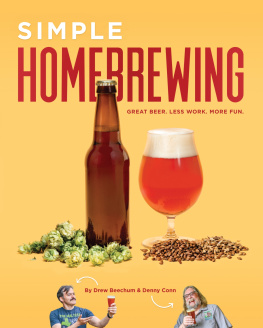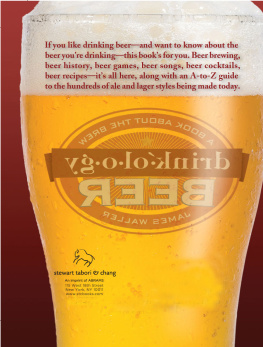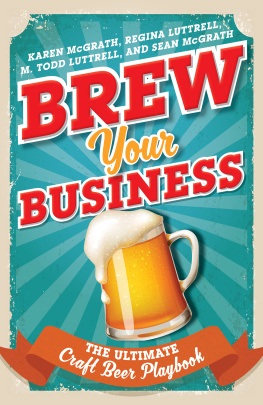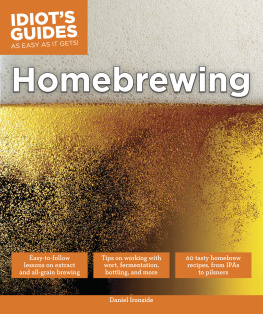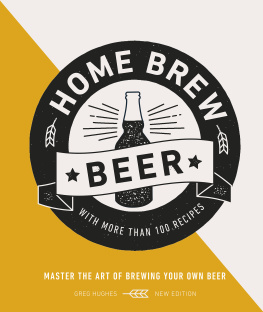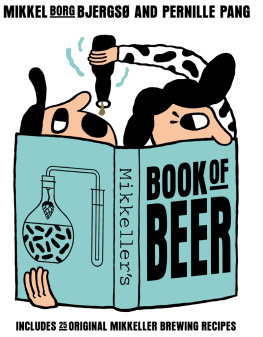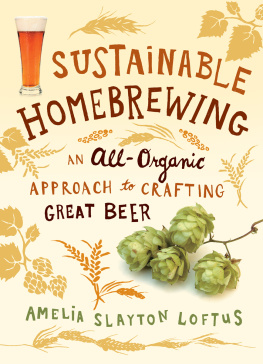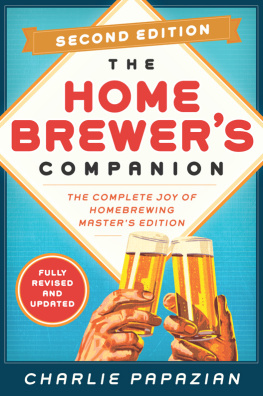Now open your eyes. Do you get this feeling when you brew? Its okay. We arent sizing you up for a padded cell. We feel the same way. In fact, were obsessive when it comes to unlocking the secrets of beer and stumbling upon the next great discovery. New flavors! New sensations! One day, theyll see our true genius! Well show them!
Ahem sorry about that. Its hard not to get carried away when you get us going about homebrewing. If youre just beginning to brew or havent yet begun, oh are you in for a treat. Some of the stuff we talk about will seem bewildering, but dont worry. There are great beginners books out there to help you master the basics (see ). In this book, weve tried to create a companion to those books, a book that will help you on your way from ordinary brewer to accomplished mad scientist.
For those of you who brew but go into a cold, sweaty panic when you hear the word science, dont worry. You wont find us breaking out anything more complicated than what was available to the average brewery of pre-Prohibition times. The idea is to try new stuff, decide if it makes beer that you like, and go from there. Really, were all about getting a chance to play and learn in the brewhouse.
ABOUT OUR PROCESS
When we first sat down and debated what this book was going to look like, we spent a lot of time talking about our brew day processes. In other words, how should we look at Dennys techniques for brewing a world-famous bourbon vanilla porter or Drews constant twists and turns on a familiar style, like saison?
As we sat and pondered our successful beers, we realized the weird and wacky side of things only worked due to some reasoned experimentation. We can talk endlessly about the strange ideas we have, but the success with a recipe always comes back to the trial and error. It comes back to the experiment.
Merriam-Webster defines an experiment as an operation or procedure carried out under controlled conditions in order to discover an unknown effect or law, to test or establish a hypothesis, or to illustrate a known law. For scientists, an experiment is an attempt to answer a question. This is where the vaunted scientific method, oft-misunderstood cornerstone of the modern world, comes into play. The method consists of a series of steps that the experimenter must follow for it to be an official experiment:
Question: What is the question youre seeking to answer?
Hypothesis: What do you think the answer is? You must be able to prove your hypothesis true or false.
Prediction: How will you know that your hypothesis is right or wrong?
Test: This is your experiment.
Review and analysis: Look at your results and see whether your hypothesis is true or false based on your data.
Now lets apply the scientific method to brewing. Perhaps we want to find out if late-hop-only (hop-bursted) beers exhibit the same bitterness as traditionally hopped beers:
Question: Do late-hop-only beers exhibit the same bitterness as traditionally hopped beers?
Hypothesis: Beers with only late additions will have a noticeably less bitter flavor than beers bittered to the same calculated international bittering units (IBUs) with a start-of-boil bittering charge.
Prediction: The less bitter beer will be discernible in a taste test focused on evaluating bitterness.
Test: Brew two beers from one mash. One boil kettle will get a standard 60-minute addition with enough alpha acid units (AAUs) to create 30 IBUs. The second boil kettle will get a late-hop-only charge at 5 minutes with enough AAUs to create 30 IBUs.
Review and analysis: Does a blind triangle tasting confirm the hypothesis? How many judges got it correct? What were their comments?
This may seem pretty straightforward, but the details can sink any experiment. For instance, if we change the word flavor in the hypothesis to level, then it calls into question the prediction. What does level mean? A quantified IBU? Great! But that would require fancy equipment to measure. On the other hand, flavor allows us to use a taste test. And in the end, isnt that what you care about?
In the professional world, scientists spend countless hours designing and redesigning their experiments to make sure that what theyre testing is what they think theyre testing. It takes weeks of careful strategizing for scientists to make sure theyve got the right plan in place. On the other hand, the experimentation that well be doing is going to be simple kitchen sciencewithout the rigorous controls and designs that are required if youre releasing, say, a cancer treatment. Its somewhat scientific, but its not Science with a capital S. Its about the beer.
WHAT WELL DISCOVER
While humans have been making beer for at least seven thousand years, science and brewing werent properly introduced to each other until the late 1700s, after the invention of the thermometer and saccharometer. It wasnt until Louis Pasteur that people figured out why beer spoiled, or that yeast was responsible for wort becoming beer.
These days, a number of big breweries, such as Carlsberg and Anheuser-Busch, have large brewing laboratories focused both on quality control and on making discoveries: new strains of lager yeast, mashing profiles, maximizing efficiency, minimizing oxidation, extending shelf life, and so on. With scientists on staff at breweries, whats left for us amateurs noodling in our kitchens, garages, and basements? Turns out theres plenty that we need to do, for one not-so-obvious reason: our needs and concerns as homebrewers are not the same as those of the pros. We also have more freedom than the commercial brewers we know and love. Experimenting with even seven barrels of beera small amount by most brewery standardswill translate to a loss of $2,000 or more if the batch goes sideways. If you mess up a batch, youre probably out $40 at the most.
Do you get different hop aromas from hops steeped at different temperatures? Can you change your flavor and aroma characters by pitching different amounts of yeast? What are the impacts of different mash tuns? Whats the best way to add vanilla or chocolate to a beer? These are all questions that we care about, but that wont necessarily be covered by the research funds of large brewers. These questions are exciting, so well do our best to answer some of them and provide jumping-off points to experiment with others.
KEEPING THE EXPERIMENT ALIVE
Experimental brewing can be about individual exploration, understanding how processes work, harnessing a new ingredient, or figuring out how to save some time, but its also about helping other brewers by passing along what youve learned. One of the most fun and gratifying parts of being a homebrewer is the camaraderie with other homebrewers. Giving back and helping out by sharing the knowledge you gain through experimentation can be as rewarding as popping the cap or tapping the keg of your latest beer. Pay it forward, and your hobby will become even more fulfilling than that third pint of doppelbock.


